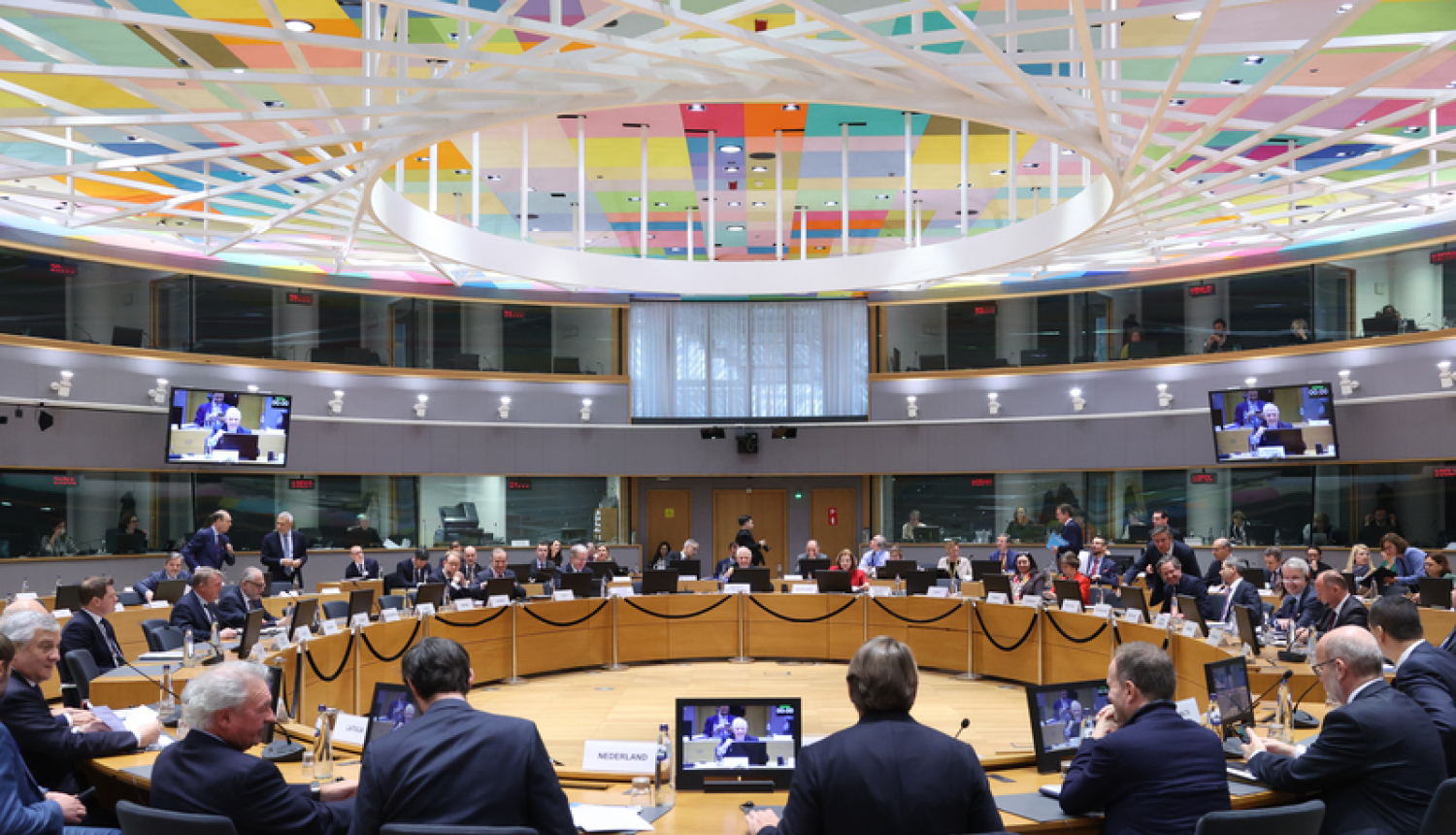On 20 March 2023, the Minister of Foreign Affairs of Latvia, Edgars Rinkēvičs, took part in the meeting of the Foreign Affairs Council of the European Union in Brussels, which featured a discussion on the Russian aggression against Ukraine, and on Tunisia, as well as a joint session with defence ministers on the implementation of the EU Strategic Compass for security and defence and the EU’s support to Ukraine.
The Foreign Affairs Council held a discussion on various types of support for Ukraine, the geopolitical consequences of Russia’s aggression, the current sanctions policy, food security and Russia’s accountability for crimes committed in Ukraine.
At the meeting, Edgars Rinkēvičs emphasized the need to continue uninterrupted and long-term military support to Ukraine. Latvia is interested in building the capacity of the European defence industry, while planning to also launch military production in Latvia in the medium term.
At the same time, political, economic and diplomatic pressure on Russia must continue, and the sanctions adopted must be effectively implemented and their circumvention prevented. “Latvia will continue to provide all possible political, military, humanitarian and financial support to Ukraine and Latvia will remain engaged in Ukraine’s reconstruction. Support for Ukraine’s integration with the European Union must also continue. The reforms undertaken must be sustainable and irreversible. As soon as Ukraine fulfils the conditions set by the European Commission, the European Union must enter into accession negotiations with Ukraine without delay. We call on the European Commission to make an early assessment of Ukraine’s progress in implementing reforms in spring 2023, so that Ukraine could more effectively complete the seven criteria imposed on it,” Edgars Rinkēvičs said.
The Minister reiterated his call for a common EU position to be formulated on the form of the mechanism for investigating and prosecuting the crime of aggression against Ukraine. Latvia prefers an ad hoc international tribunal within the United Nations system.
The ministerial meeting also held a discussion on developments in Tunisia affecting stability in the region and the EU, notably in the context of migration. The Latvian Foreign Minister expressed confidence that the deteriorating situation in Tunisia could undermine stability across the whole region and create new flows of refugees towards the EU. Democratic reforms in Tunisia and the active involvement of the EU in the Southern Neighbourhood are therefore necessary. The Minister called for the facilitation of Tunisia’s agreement with the International Monetary Fund, which is essential not only for promoting reforms, but also for reducing the risks of socio-economic crisis and radicalisation.
The Foreign Minister, along with other foreign ministers of EU Member States, also attended the opening ceremony of the EU’s Second Humanitarian Forum in Brussels. The EU is raising the issue of humanitarian funding and mobilising EU Member States in the face of the growing global humanitarian needs.
Edgars Rinkēvičs pointed out that last year, Latvia provided humanitarian aid worldwide, worth four million euros. “Latvia’s main focus is placed on addressing the unprecedented Russian aggression in Ukraine. Latvia also supported tackling of the crisis caused by climate change and natural disasters in Pakistan and Tonga, the resolution of the humanitarian crisis in Afghanistan, especially in the protection of the rights of women and girls in that country, and food security challenges,” the minister emphasized in his address.
The Foreign Minister pointed out that Latvia provided assistance mainly through voluntary contributions to the multilateral system such as to the United Nations or the EU, or to local partners in crisis-affected countries. Latvia provides humanitarian assistance on an ad hoc basis.
“We pledge our commitment to continued involvement in addressing these challenges. Since the start of the year, Latvia has already provided humanitarian assistance to people in Turkey and Syria amounting to approximately one million euros. in 2023, we will continue to advocate strongly for women’s rights, especially in the context of world conflicts. Since the first day of Russia’s war against Ukraine, we have been providing psychosocial support and rehabilitation to women who have suffered sexual abuse. The international community must do what it takes to ensure full accountability for sexual and gender-based crimes,” Edgars Rinkēvičs underlined.




